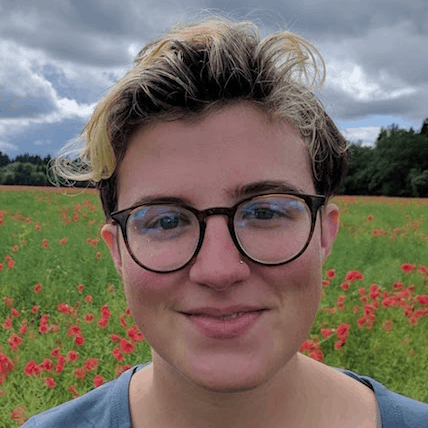For this episode, Matt McLarty and Mike Amundsen sat down with world-traveler and self-described civic technologist Shelby Switzer (@switzerly). Born in South Carolina, Switzer has a passion for adventure and civic engagement. Her travels have taken her to Trinity College at the University of Cambridge in the UK, Malaysia, Mt. Everest base camp and Nepal, and The Democratic Republic of Congo. Back in the U.S., she’s been involved with a handful of tech startups focused on health and wellness and is currently working for the U.S. Digital Service (USDS) at the Centers for Medicaid and Medicare Services (CMS).

You can listen to the episode here:
Shelby continues her focus on civic tech through her “{CIVIC:UNREST}” project and through co-chairing the RESTFest conference series as well as speaking at events across the globe. We were happy that Shelby was able to take a break from her busy schedule to talk with us about APIs, activism, and technology in general. Below are some of the highlights from our wide-ranging conversation.
U.S. Digital Service, APIs, and modernization (2:00)
At the time of our interview, Switzer was working with the U.S. government on a project called “Data at the Point of Care.” Essentially, her work centers around the one partof universal online health records. As she explains: “This is an API product all about getting medicare claims data for individuals into the hands of providers directly at the point of care.”
This launched us into a discussion of the role of claims data in ensuring quality health care along with the broader picture of how the U.S. Digital Service works across the federal government to improve access to essential data through modernization of existing systems through APIs in the cloud.
APIs, innovation, and silos in government tech (5:55)
That led to a discussion about the role of APIs as enablers of innovation for governments at all levels. “A lot of what we do at USDS … is about education … It’s kinda going back to the basics.”
Switzer told us that technology at the state and city level often look quite compared to the federal level. This includes the challenge of silos that separate tech initiatives at various levels. That presents a unique set of challenges, too.
Open data at the local level (10:04)
We then segued into a discussion of how we can use open data to enable citizens at the local level including school boards, city councils, country government, and more. Swtizer described the Voterheads project as one example. “The goal of this product was to provide a social media platform to connect citizens with local government.”
This led to working with Code for America in South Carolina, Georgia, and Denver on open data projects for non-profits and community organizations to foster great impacts at the local level.
API-in-Box: APIs for availability and scalability (12:50)
When talking about the challenge of making open data available and scalable for local governments, Swizter told us about one of her github-based projects called “API-in-a-Box.”
“We had to start sharing data and making it interoperable and using GitHub as a data source. So, I started a project called API-in-a-Box, which basically uses publicly available open data sets and then scrapes them, piles them into a Docker container version of elastic search, and puts a hypermedia API top of it.”
Matt also asked about fundamental roadblocks to more, and more accessible, open data at the local level, how to deal with data quality issues, and where APIs can help. “I think the APIs go some of the way to solving this problem, because it does make data more usable. It makes data available in a more scalable way,” said Switzer.
The Open Referral Initiative (17:50)
As an example of a successful project making open data available at the local level is a project Switzer worked on called “The Open Referral Initiative.” Shelby says, “[T]their goal is to make community resource data or data about health and human services interoperable and standardized so that you can share it between platforms.”
Products, stories, and standards (22:35)
Mike then brought up the notion of treating these API projects as products and the parallel approach taken by for-profit organizations to make sure their APIs fill an identifiable need for an existing audience and the role established standard plays in all this.
“CMS is one of the early adopters of FHIR and is really trying to push open standards and interoperability,” Switzer explains. “FHIR [stands for] Fast Healthcare Interoperability Resources. You don’t have to remember what it stands for. But it is the JSON-based standard for data interoperability in healthcare.”
So, how does one get involved? (27:15)
After describing such a wide range of opportunities that exist for helping communities improve their use of open data and APIs, the question comes up, if you’re interested in contributing, where do you start? Switzer listed a number of possibilities including Code for America, U.S. Digital Service, 18F, and monitoring her blog {CIVIC:UNREST}.
Follow the podcast on SoundCloud or subscribe to our newsletter above to get summaries of the episodes.









